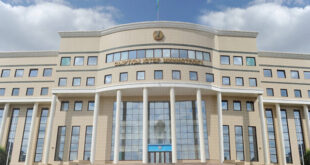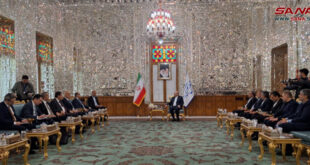Moscow, SANA- Russian Foreign Minister Sergey Lavrov expressed hope that the next round of Astana meeting on Syria will success in clarifying the joint vision regarding de-escalation zones.
Lavrov made his remarks during a joint press conference with his Ethiopian counterpart in Moscow on Monday.
“A significant decline in military activities and violence has been recorded in the relevant areas of Syria,” Lavrov said, adding that it was the result of the declaration of de-escalation zones. “I hope that the next round of the Astana talks will positively affect our common efforts aimed at resolving the Syrian crisis and facilitate the UN-sponsored talks that are planned to be held in Geneva after the Astana meeting, in the first half of July,” Lavrov pointed out.
He noted to the efforts exerted by the experts in the preparation for the next round of Astana meeting to set up all the details for implementing the de-escalation zone memorandum at the technical, military and theoretical levels to monitor the Cessation of Hostilities Agreement and facilitate the delivery of humanitarian aid and the return of the civilians without any impediments.
“The impression, based on the experience of fighting terrorism in Syria, is that the US-led coalition and its allied countries are sheltering the so-called Jabhat Al-Nusra, or whatever it is called now,” he said. “We have seen new proofs Jabhat Al-Nusra in its new mold is being shielded from strikes.” Lavrov said.
“We consider it a very dangerous game, which must be stopped, and whatever double standards, back thoughts or hidden plans should be put aside for the sake of uncompromised fight against terrorism,” Lavrov added.
Later, Lavrov discussed with US State Secretary Rex Tillerson means for resolving the crisis in Syria, including supporting the cessation of combat operations and fighting terrorism.
In a phone call with Tillerson, Lavrov called on Washington to take the necessary measures to prevent provocations against the Syrian Arab Army which is fighting terrorism.
The two discussed resolving the crisis in Syria, including the need to bolster the cessation of combat activities, particularly via the Astana meetings, stepping up the fight against terrorist groups, and prevent the use of toxic chemicals, and they agreed to stay in contact.
Shaza/Ghossoun
 Syrian Arab News Agency S A N A
Syrian Arab News Agency S A N A




